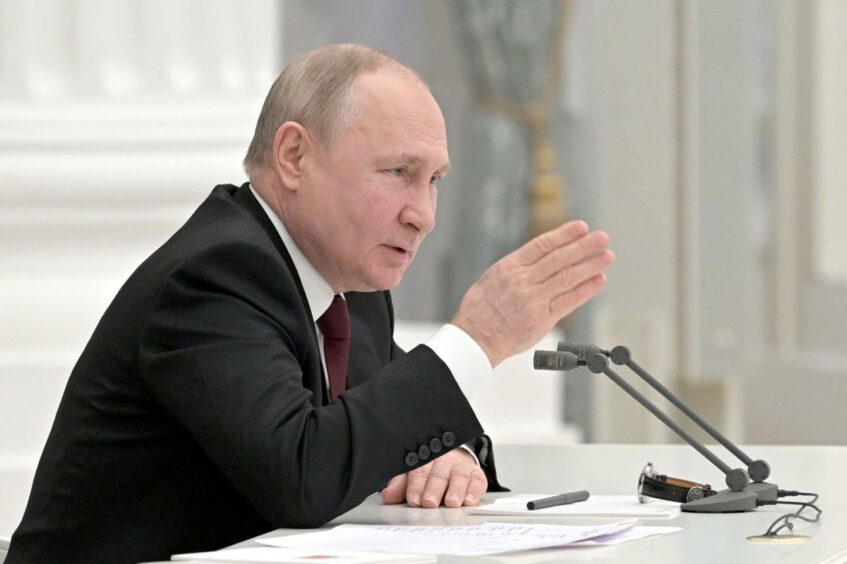
Oil steadied in Asia after rallying back above $100 a barrel as Russian President Vladimir Putin vowed to continue the war in Ukraine, which has rattled markets and tightened global crude supply.
West Texas Intermediate surged 6.7% on Tuesday, the most in three weeks. Putin said peace talks with Ukraine are “at a dead end” as the war continues into its second month. US crude output will grow at a slower pace than previously expected, the Energy Information Administration forecast.
The war in Europe has rippled through global markets and fanned inflation just as governments were trying to encourage economic growth after the pandemic faded. The world’s top independent oil trader — Vitol Group — intends to stop trading Russian-origin crude and products by the end of this year.
“Worsening tensions in Ukraine as well as increasing self-isolation from Russian energy should drive sentiment higher in the short-term,” said Daniel Hynes, a Sydney-based senior commodities strategist at Australia and New Zealand Banking Group Ltd.
OPEC Secretary General Mohammad Barkindo said on Monday that Russian oil supply losses stemming from sanctions or a customer boycott could potentially exceed 7 million barrels a day, but there are no signs its exports are starting to crumble just yet. Indian refiners — among the few remaining buyers — are not seeing the record discounts being offered in Europe, however.
US crude output is expected to average 12.01 million barrels a day this year, compared with the previous forecast of 12.03 million barrels a day, according to the EIA. Shale producers are grappling with higher production and labor costs amid rampant inflation. The International Energy Agency will provide its snapshot of the overall market later Wednesday.
Prices
WTI for May was little changed at $100.46 a barrel on the New York Mercantile Exchange at 12:02 p.m. in Singapore.
Brent for June settlement slipped 0.1% to $104.57 on the ICE Futures Europe exchange surging 6.3% on Tuesday.
A massive planned release of strategic crude reserves by the US and its allies along with China’s demand worries due to a coronavirus resurgence there have weighed on prices in the last few weeks. Some restrictions in Shanghai have been lifted, but most people are still confined to their homes.
Brent remains in backwardation, a bullish structure where near-dated contracts are more expensive than later-dated ones, although it’s eased over the past week. The prompt timespread for the global benchmark was at 53 cents a barrel in backwardation, compared with $1.53 at the start of last week.
Separately, the American Petroleum Institute reported US crude stockpiles rose by 7.76 million barrels last week, according to people familiar with the data. Gasoline inventories shrunk by 5.05 million barrels, the API said. The EIA is scheduled to release official data later Wednesday.